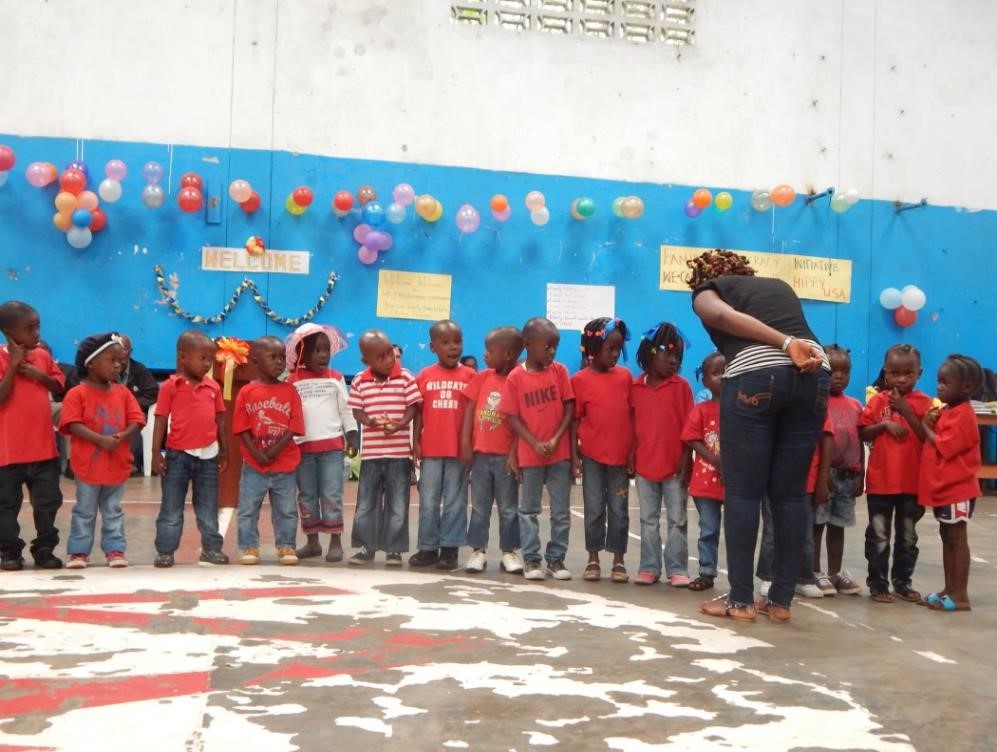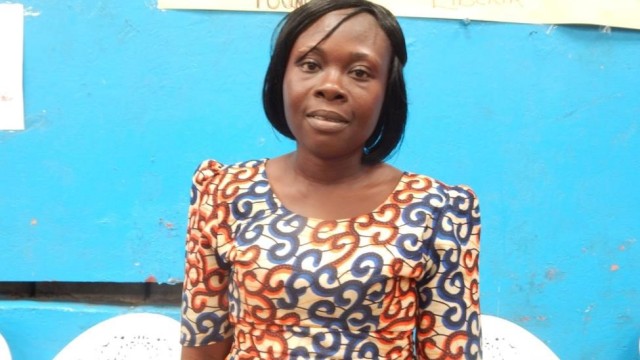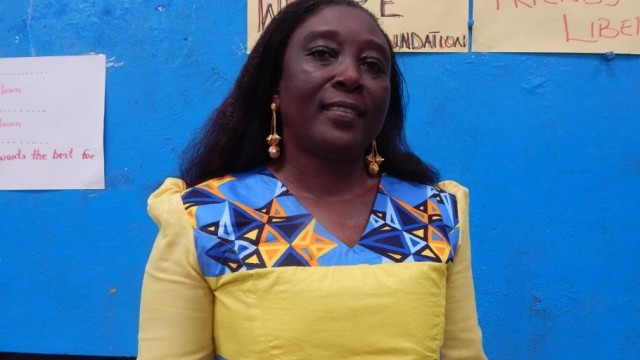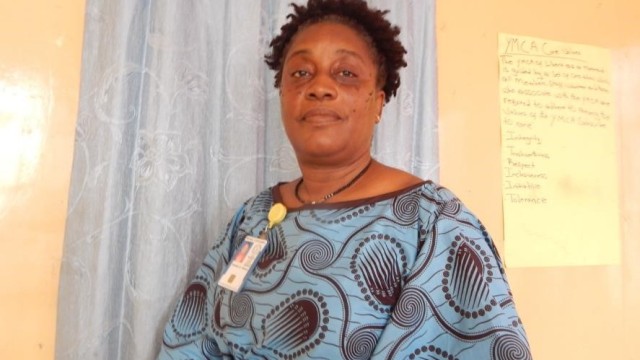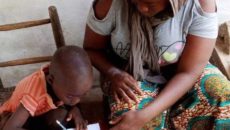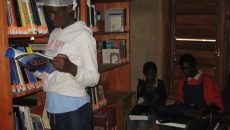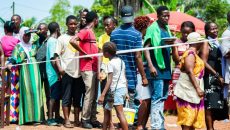MONROVIA, Montserrado – The We-Care Foundation, a local educational support group has ended the first pilot of its Family Literacy Initiative. The thirty-week home literacy program trained parents to provide home education for their young children.
Last year, Friends of Liberia, a US-based non-profit, in partnership with HIPPY International and the We-Care Foundation, launched FLI in Liberia.
Of the 60 families recruited in three slum communities (Duazon, Caldwell, and West Point) 54 completed the program.
In the communities, home visitors trained parents in basic teaching skills, while the parents in turn taught their own children how to read, write, and identify shapes and colors. Â The curriculum requires that a child in the three-year program would be ready for grade-one in regular school at age six to compete with others who are currently enrolled in pre-primary schools.
Gbima Bahtokpah, a coordinator for the program, said a total of fifty-eight children between the ages of three and four completed the first level of the program. She said the children enrolled in the program were those who are currently out of school because of the economic challenges their parents face.
“At the end of the thirty-week exercise, parents now have the tool, confidence, and skills they need. The parents become their children’s first teachers, and they teach their children to get ready for school,†she said.
However, Bahtokpah said “working with parents who are not literate to teach their children was a challenge.â€
She suggested that introducing an adult literacy program for parents would increase the impact of the Family Literacy Initiative. Additionally, she mentioned a difficulty in getting older siblings’ full commitment to teaching their younger ones.
Moreover, Bahtokpah said some families could not complete the program because parents missed out on sessions to spend time finding meals and other basic needs for survival.
“Most parents who are not working had thought that we would provide them with basic needs to have them spend more time with their families,†she said.
A home visitor assigned in West Point, Nathaniel Wright, said most parents showed interest in the program and were committed to their weekly engagements.
He said the training provided them by HIPPY International played a major role in helping them achieve the goal of the program.
“During the period, we were able to work with every parent including semi-literate ones. Now, they can teach their children at home,†he said.
For Angie Robertson, a parent in Caldwell, the program has greatly improved her son’s academic ability.
“He was in school but had to drop for so many reasons, but with what we did during the program, he has greatly improved,†Robertson said.
She praised the organizers for the program and encouraged them to get more families enrolled.
Yvonne Capehart Weah of the We-Care Foundation said she was satisfied with what the families achieved through the program.
During the closing ceremony last Friday, the children displayed some of what they had learned during the program. They identified colors and shapes, some read books, while others identified their senses among others.
Weah said the second phase of the program would kick off in October with the recruitment of an additional 60 families of three-year-olds who are out of school.
“We are focusing on the same communities because the program is in its pilot phase, and we want to be able to measure our impact at the end,†she said. “Before the home visitors got ready, we conducted a school readiness assessment for every child, using international standards. Then in August this year, we had external assessors coming and doing a pose assessment with these children – and our children came out with flying colors after the analysis. So, we know that we have made impacts on these children’s lives and their families.â€
She said while the new batch of beneficiaries would be starting their first year, the newly promoted children would be working on their second-year curriculum.
Weah said the program cost more than US$80,000 and employed six home-visitors and two coordinators.
She also welcomed the recommendation to introduce adult literacy training for the program’s parents. “That would be a plus because this program also has its own attachment to parents,†she said. “What we have seen over the 30 weeks is that the program has built the self-esteem of parents. First, they thought that only the school that should teach their parents. Parents now know that they are able to teach their children, but recognize that they have some of their weaknesses into literacy. So they want to build that capacity within themselves in order to continue.â€
She said her foundation is currently discussing with donors to support the adult literacy component of the family learning initiative.
If funding is available, Weah said the foundation would partner with adult literacy institutions in the country to achieve its goal.
Although the Division of Early Childhood Education of the Ministry of Education had assisted during the recruitment of coordinators and home visitors, Weah said the government has not provided any financial or other support to the program.
She called on the legislature to prioritize early childhood education by allocating funds to the sector in the national budget.
“If we must tackle and improve our education system, we must place priority down there,†she said. “So you cannot leave that section outside of the budget for education.â€
The government’s free and compulsory primary education policy does not affect early childhood education. Students in this division this year are required to pay at least L$3500 (US$35.71) for registration. This amount, Weah said, is too high for struggling parents.
Yukhiko Amnon, the assistant minister for early childhood education, said her division has not been captured in the national budget.
Amnon said up to now, only salaries for staff are captured in the ministry’s budget for her division. “We don’t even have access to many of the counties because we don’t have an assigned vehicle,†Amnon said. “Everywhere we have been, we did so using our personal vehicle.â€
She said the ministry has developed a policy to allow children from age zero to five years to benefit from free medical benefits excluding emergencies including birth registration and immunization, protection and nutrition.
She said few parents are aware of the new policy and therefore they may not be taking advantage of it.
“At the ministry, we have created a number of documents,†she said. “One of them is the Early Childhood Development Awareness Package. It’s our bible, but I don’t take it out alone. I take it along with other sectors. That means, I go out with members of other sectors and agencies including the Ministries of Health, Internal Affairs among others to create awareness.â€
“The biggest challenge is that we practically go out on our own because we want to see a difference. We do not have a car, we do not have budget allocated to that,†she said.
She said although the government has named education as a priority, the legislature has not seen the need to make a holistic budgetary allotment to the sector. “We have always placed it there, but the lawmakers scratch it out,†she added.
The budget for the 2016/2017 fiscal period is currently before the senate for concurrence after it was passed by the House of Representatives. More than US$80 million is allotted to the education sector, although the amount going to the Ministry of Education itself is much smaller.
Featured photo by Gbatemah Senah
